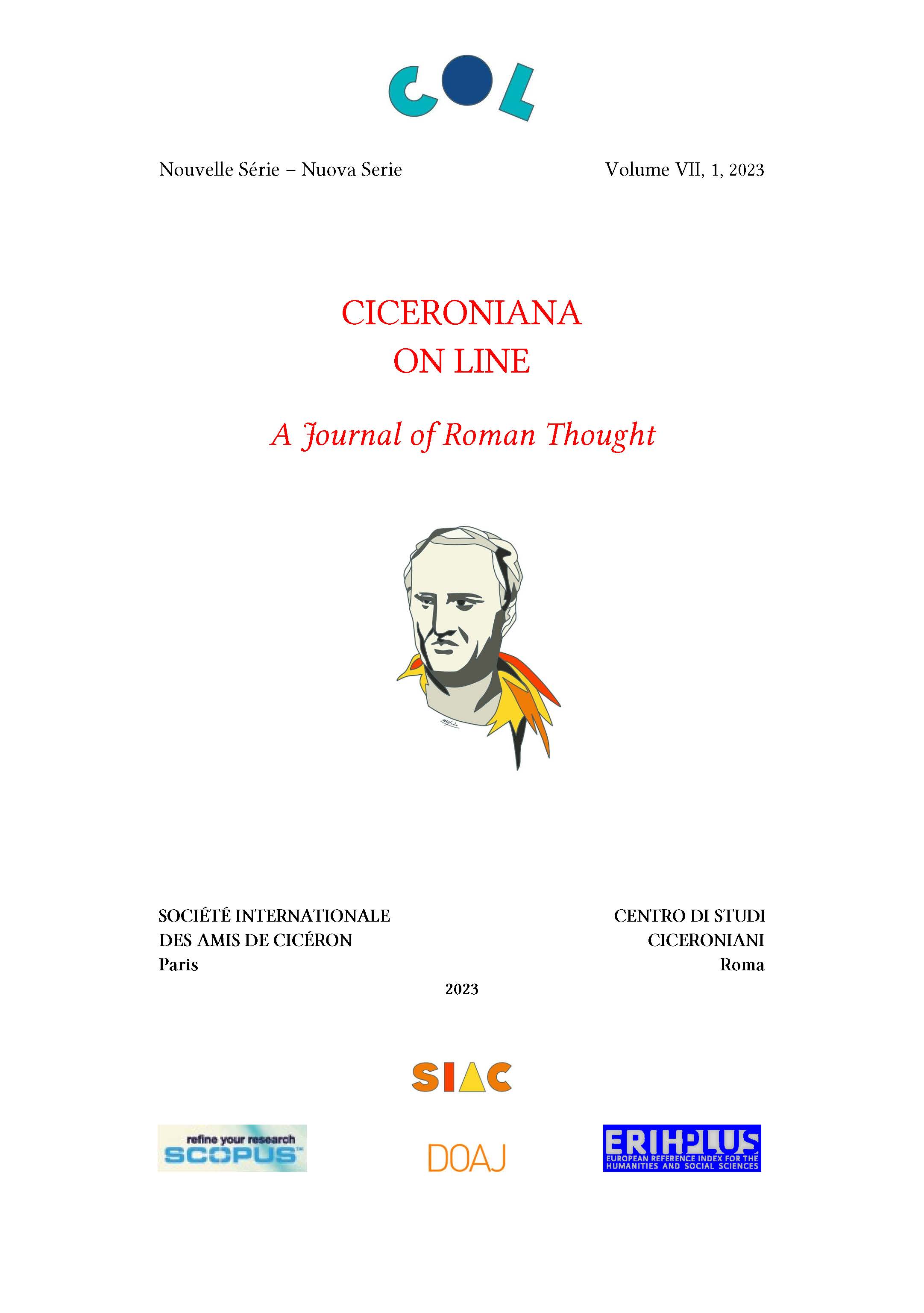Cicero’s De Divinatione in Religious and Historical Perspective
DOI:
https://doi.org/10.13135/2532-5353/7737Abstract
Nell’articolo si sostiene che l’espansione imperiale della tarda repubblica si riflette nei testi filosofici di Cicerone, ad esempio nel De divinatione. L’espansione di Roma rendeva necessaria una riflessione su cosa significasse essere romani e su quali fossero le pratiche romane, soprattutto nel confronto con altre, estere, che potevano sembrare simili. Cicerone offre i suoi testi come un ammonimento a considerare le pratiche religiose – in questo caso la divinazione – che i Romani potevano incontrare nelle province e a come trattarle, a considerare la loro utilità tenendo anche presente il pericolo latente di non farle bene o di superare la necessità religiosa che sostiene la pax deorum. Inserito nel contesto dell’impero in espansione, l’articolo dà un senso ai molteplici esempi non romani citati soprattutto nel Libro I del De divinatione.
Downloads
##submission.downloads##
Pubblicato
Come citare
Fascicolo
Sezione
Licenza
Gli autori che pubblicano su questa rivista accettano le seguenti condizioni:
- Gli autori mantengono i diritti sulla loro opera e cedono alla rivista il diritto di prima pubblicazione dell'opera, contemporaneamente licenziata sotto una Licenza Creative Commons - Attribuzione che permette ad altri di condividere l'opera indicando la paternità intellettuale e la prima pubblicazione su questa rivista.
- Gli autori possono aderire ad altri accordi di licenza non esclusiva per la distribuzione della versione dell'opera pubblicata (es. depositarla in un archivio istituzionale o pubblicarla in una monografia), a patto di indicare che la prima pubblicazione è avvenuta su questa rivista.


 Ciceroniana On Line è riconosciuta dall'ANVUR (Agenzia Nazionale di Valutazione del sistema Universitario e della Ricerca) come rivista di CLASSE A per le Scienze dell’antichità, filologico-letterarie e storico-artistiche (
Ciceroniana On Line è riconosciuta dall'ANVUR (Agenzia Nazionale di Valutazione del sistema Universitario e della Ricerca) come rivista di CLASSE A per le Scienze dell’antichità, filologico-letterarie e storico-artistiche ( La rivista è inclusa in DOAJ. L'elenco delle riviste DOAJ è disponibile all'indirizzo
La rivista è inclusa in DOAJ. L'elenco delle riviste DOAJ è disponibile all'indirizzo  La rivista è indicizzata in
La rivista è indicizzata in  La rivista è inserita in ERIH PLUS. L'elenco ERIH PLUS delle riviste è disponibile all'indirizzo
La rivista è inserita in ERIH PLUS. L'elenco ERIH PLUS delle riviste è disponibile all'indirizzo 
